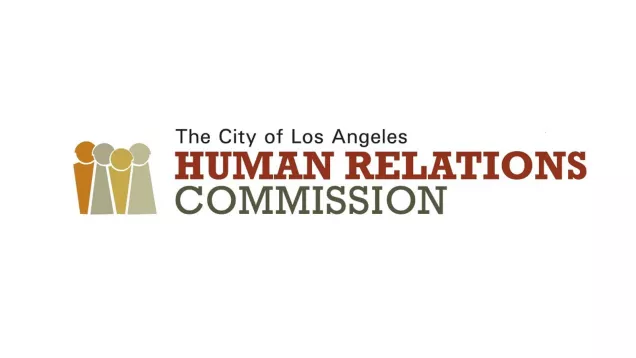
LOS ANGELES - The City of Los Angeles’ Human Relations Commission released a three-year report on policing and the Black community in South Los Angeles today which includes direct quotes and recommendations from 92 adults and youth.
“It’s absolutely essential to hear from the community about their perceptions, experiences and recommendations for building trust with law enforcement. Their insight was invaluable, and we owe them a debt of gratitude,” Commissioner Courtney Morgan-Greene, the lead author on the report, said. “Everyone wants the same thing and that’s respect and dignity. With everyone on board, working toward the same goals, we can build that bridge to a better Los Angeles and a better world.”
The 44-page report, titled “Community Dinner Dialogue Pilot Program and Reconvening Report,” spans numerous dialogues held with South LA community members from 2018 to 2021 and includes best practices, and eight recommendations for the Los Angeles Police Department (LAPD) to improve community relations.
Direct quotes from adult and youth participants span 18 pages of the report, a broad swath of direct experiences and recommendations from Black community members of South LA.
“I want to know them like I know my postman,” reads one quote from a youth participant in the dialogues, describing the relationship he would like to see with the LAPD. “I should be treated the same way as the person up the street, the person up the hill, the person over the mountain,” read another from an adult participant.
Recommendations from the report include developing an equity mission and goals within LAPD, expanded dialogues with the Black community, expanding the Community Safety Partnership Bureau (CSPB) model to all bureaus and officers, strategic transfer of certain calls on homeless intervention, mental health and wellness checks, drug intervention and more. Read the full list of recommendations on pages two and three of the report.
“We are so grateful to the Human Relations Commission and to Commissioner Courtney Morgan-Greene for this report which amplifies community voices and lived experiences to build understanding between the Black community and LAPD,” said Capri Maddox, Executive Director of the Civil + Human Rights and Equity Department (LA Civil Rights), which oversees the city’s Human Relations Commission. “Progress begins with peaceful dialogue, and that’s what the Human Relations Commission was able to build with this report."
“The Human Relations Commission is dedicated to promoting healthy human relations among individuals and diverse constituencies in all aspects of the civic life of the city,” Commission President Angelica Solis-Montero said. “The findings and recommendations are important because they exemplify the commission's values and our continued commitment to supporting relationship building between the Black community and LAPD. I'm grateful to the Civil + Human Rights and Equity Department, the Commission, and especially Commissioner Morgan-Greene for leading this important work for the past three years. It is my hope that the commission can continue to use this community engagement process to uplift community voices about issues that are critical to our city.”
The Human Relations Commission Dinner Dialogue Pilot Program first began with nine small dialogues in 2018 and 2019 with the goal to assess perceptions of law enforcement and gather concrete, actionable recommendations for building trust. It included a diverse cross-section of the Black community in South Los Angeles. The results of those dialogues were compiled in a report published in 2019.
On January 21, 2021, the HRC hosted a virtual follow-up program, which reconvened the original participants for a conversation on how the events of 2020-2021 have impacted their thoughts on policing and to assess shifts in attitudes since the 2018 convening. In the follow-up, the HRC also convened a small group of LAPD officers assigned to South LA for a private dialogue on their thoughts and experiences on improving community relations.
“While there remains a disconnect between the Black community and the LAPD, these groups are not polar opposites,” the report reads. “The gap in culture and thinking is not nearly as wide as the social chasm that has been created between them.”
Read the full report here.
###
The Los Angeles Civil + Human Rights and Equity Department (LA Civil Rights) was established on December 1, 2020 to maintain and strengthen Los Angeles’ diversity, equity, and accountability through equity & empowerment programming, outreach, and anti-discrimination enforcement.
civilandhumanrights.lacity.org